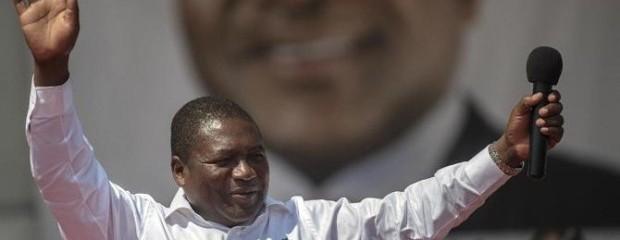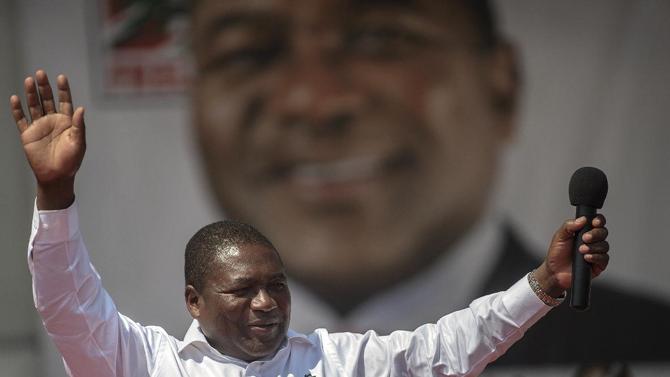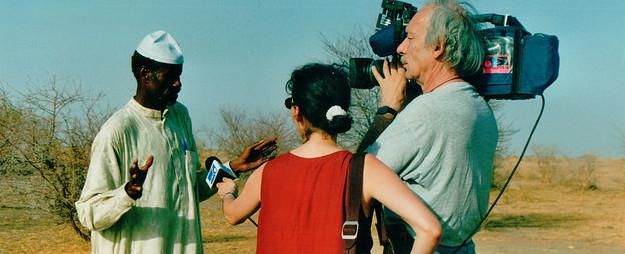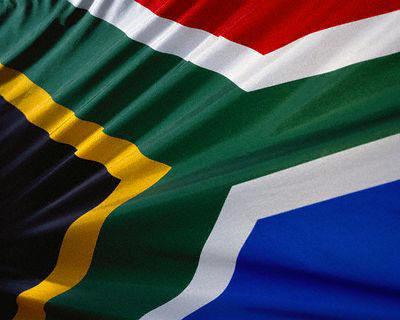Mozambique Elections: big win or big fix for Frelimo? – By Cate Reid


Felipe Nyusi, despite accusations of electoral fraud, has been announced winner of the October presidential election.
After a long and chaotic counting process, Mozambique has a new president. Filipe Nyusi, the little-known candidate of the Frente de Libertaí§í£o de Moí§ambique (Frelimo) party, counted on the party’s traditional loyalists and a hard-fought campaign (which rapidly raised his profile) to come through with a convincing 57% of the vote. The opposition and civil society also say that significant fraud played its part in his victory.
The main opposition party, Resistíªncia Nacional Moí§ambicana (Renamo) has been complaining about this vocally since polling day. This saw a raft of administrative problems including voting tables opening late or not at all, crucial election materials missing from polling stations and both EU and opposition observers barred from entering polling stations.
Analysis by the Mozambique Political Process bulletin concludes that there were problems at 10% of polling stations – a level considered to be very high and more likely to be down to “˜organised disorganisation’ than mere accident. Academic Joe Hanlon says that in a country with extensive experience of elections and years to prepare, there was no excuse for such incompetence.
Both Renamo and second opposition party the Movimento Democrático de Moí§ambique (MDM) have rejected the results, with Renamo last week declaring themselves the winners with a rather exaggerated 80% of the votes for their leader Afonso Dhlakama. Days before the official count was concluded on 30 October, Dhlakama called for Frelimo to form a “˜unity government’ with Renamo, arguing that this is a democratic way to start making amends for electoral fraud that they claim was the only reason Renamo did not win.
Frelimo, on the other hand, speaks of “irregularities here and there” and remains in firm denial that there was significant fraud. The reality is probably somewhere in the middle, and blame does not lie only with Frelimo. The absence, for example, of opposition party observers in some locations was not only due to obstruction; MDM’s recruitment of observers seems to have been disorganized and there are even rumours that opposition representatives accepted bribes to stay away from polling stations.
In an interview in the independent Savana newspaper last Friday, MDM’s leader Daviz Simango argued that electoral manipulation began long before polling day. Dhlakama says that Frelimo orchestrated the obstruction of the electorate in opposition areas from registering to vote. The EU’s Chief Observer Judith Sargentini described the campaign itself as “˜unbalanced’, giving Frelimo an “˜unfair advantage.’
Criticism from the US, which followed the elections, stresses “˜abuse of state resources’ in the campaign, which Sargentini says lasted throughout polling day – including Frelimo observers being given preferential treatment by polling station staff. The EU chose its words carefully, calling polling day “˜orderly’ but raising questions over the lengthy and poorly managed tabulation process.
Also questionable is the very high disparity between turnout levels in different provinces. This phenomenon has increased over the years, with this election showing levels far above the average 50% in Frelimo strongholds such as Gaza, with areas won by Renamo – such as Zambezia – with much lower levels. There were also unusually high numbers of spoiled and blank ballots in opposition areas and provinces involved in a close contest, such as Niassa.
Taking into account the extreme improbability that remote rural provinces such as Gaza’s Massangena and Massingir could really attract turnout of over 90%, statistical analysis by the Mozambique Political Process Bulletin estimates that ballot stuffing gave Nyusi at least 105,000 false votes. What is more difficult to quantify is whether the tens of thousands of discounted ballot papers in areas where Nyusi won by only a few thousand replaced valid votes for the opposition, and by how much.
Frelimo’s objective was to avoid at all costs a second round presidential run-off, which would have potentially united the opposition vote and placed Nyusi at real risk of losing. There was talk of a comprehensive Frelimo plan to rig the elections, but many believed that with new checks and balances in place to ensure fairness and higher levels of scrutiny, any efforts to manipulate the results would be insufficient to avoid the close result suggested by pre-election polls.
Despite Dhlakama continuing to ride a wave of support throughout the election, increased quotas for opposition election observers and a more balanced National Election Commission (CNE) committee, Frelimo has clinched a victory that leaves little room for manoeuvre. Even with growing evidence of fraud, it is still unlikely that this will be sufficient to alter the final result.
Renamo and MDM argue that this is not the point – that the irregularities themselves, particularly given how widespread and diverse they seem to be, should invalidate the results. It is wrong, Dhaklama says, to make exceptions for Mozambique on the grounds that it is “˜Africa.’ Democracy, he argues, is democracy – be it in Europe, Africa, or anywhere else. But the opposition argument, that their losses were simply down to fraud, is debatable – without a full re-run of the elections it is hard to take a landslide victory by Frelimo and find enough evidence to change the overall outcome.
Many are also sceptical about Dhlakama’s motives, saying that what he proposes is not so much democracy as a way for him to secure his place in history – and a better income. There are already rumours he has already been “˜accommodated’ in a deal that will give him a slice of the country’s potentially huge gas industry.
Dhlakama’s early announcement that Renamo would not restart the conflict that destabilized Mozambique in the run up to the elections would be more convincing if the group would hand in its weapons. But it has not and is unlikely to do so; it does not want to weaken its bargaining position. Many in the party believe it did better than MDM largely because it has weapons. This mentality highlights one of Renamo’s major problems in competing with Frelimo; it does not behave like a political party. It lacks policies, competent people, and as a party won fewer votes than its leader.
People voted for Dhlakama because of his charisma and the chance he might bring change from the Frelimo-dominated status quo (or tactically, to encourage a second round). But far fewer have confidence in Renamo’s ability to govern – and the party received fewer votes than its leader.
MDM too has a long way to go. With Renamo back on the political scene, much of the anti-Frelimo vote has gone back to Frelimo’s traditional foe. A foe which many opposition supporters regard as better equipped to be a match for Frelimo than MDM, who they see as weak and unable to handle the kind of intimidation perpetrated by the ruling party during the campaign.
Simango claims that obstruction and fraud were directed particularly at MDM, whose gains in last November’s local elections caused Frelimo real concern and also left Renamo worried that they may be ousted as the main opposition. The threat posed by MDM may be one of the few points on which Frelimo and Renamo agreed – and if there was some unofficial collaboration during these elections, it served its purpose.
Though they more than doubled their number of seats in parliament to 17, MDM did not fulfil the high expectations that grew after its local election success. Since then it has not proven itself – a combination of limited experience but also little time. It also still lacks convincing policies and leader Daviz Simango is not considered particularly charismatic. A significant number of MDM voters chose Nyusi for President, leaving Simango fewer votes than his party.
Frelimo, for all its faults, is the only party the electorate have really seen govern nationally and when it comes to corruption, which has been losing Frelimo support, many are also of the view that neither opposition party would behave much better.
Nyusi now has a chance to show the electorate that he represents real change and start to address the discontent that has been growing with Frelimo. If he does not, the party knows that the electorate will not hesitate to give the opposition another chance. But like Dhlakama, Nyusi proved more popular than his party at the ballot box, giving him perhaps a stronger mandate to do things his way. Former president Armando Guebuza remains head of the party and wields considerable influence, but it seems his days are numbered as many in the party want him replaced as early as possible next year.
We are yet to see what Nyusi is really made of, but despite the circumstances in which he has been elected he has maintained his own reputation for honesty and hard work – and many are hopeful that he will bring a more youthful and democratic era to Mozambican politics.
Cate Reid is a freelance journalist.





